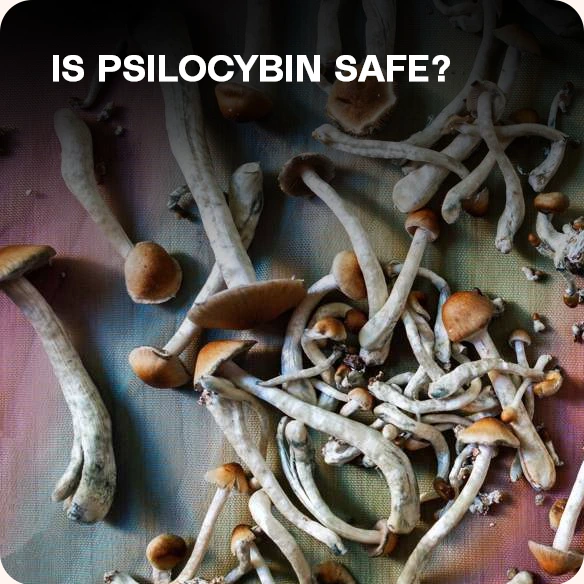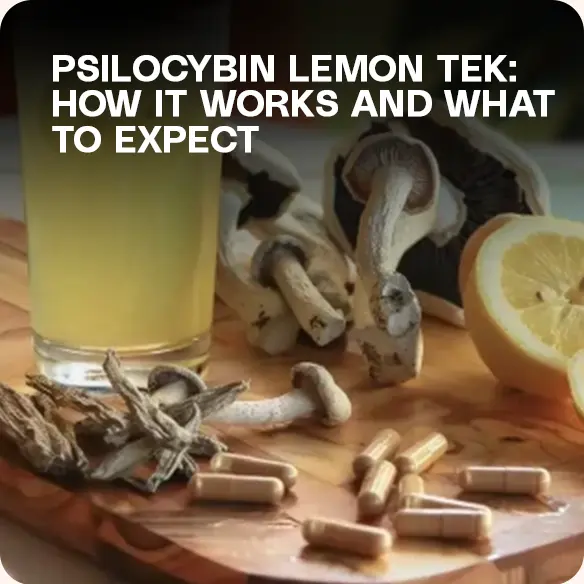Reishi mushroom (Ganoderma lucidum) provides immune system support, reduces inflammation, and improves heart health through bioactive compounds including beta-glucans and ganoderic acids.
This “mushroom of immortality,” also known as Lingzhi, offers 9 proven health benefits backed by over 400 published research studies.
For those seeking comprehensive wellness solutions, explore our premium microdosing capsules that combine functional mushrooms with psilocybin for enhanced cognitive and therapeutic benefits.
Key Takeaways:
- Reishi mushroom boosts immune function by enhancing natural killer cell activity and lymphocyte production
- Available in 5 different forms including capsules, powders, extracts, teas, and fresh preparations
- Potential side effects include digestive upset, dizziness, and medication interactions requiring medical supervision
- Daily dosage ranges from 1-3 grams of extract or 6-12 grams of dried mushroom powder
What Is Reishi Mushroom?
Reishi mushroom is a polypore fungus (Ganoderma lucidum) renowned for immune-boosting and longevity-enhancing properties in traditional Chinese medicine for over 4,000 years.
This adaptogenic mushroom contains 400+ bioactive compounds including triterpenes, beta-glucans, and ganoderic acids that modulate immune response and reduce inflammation.
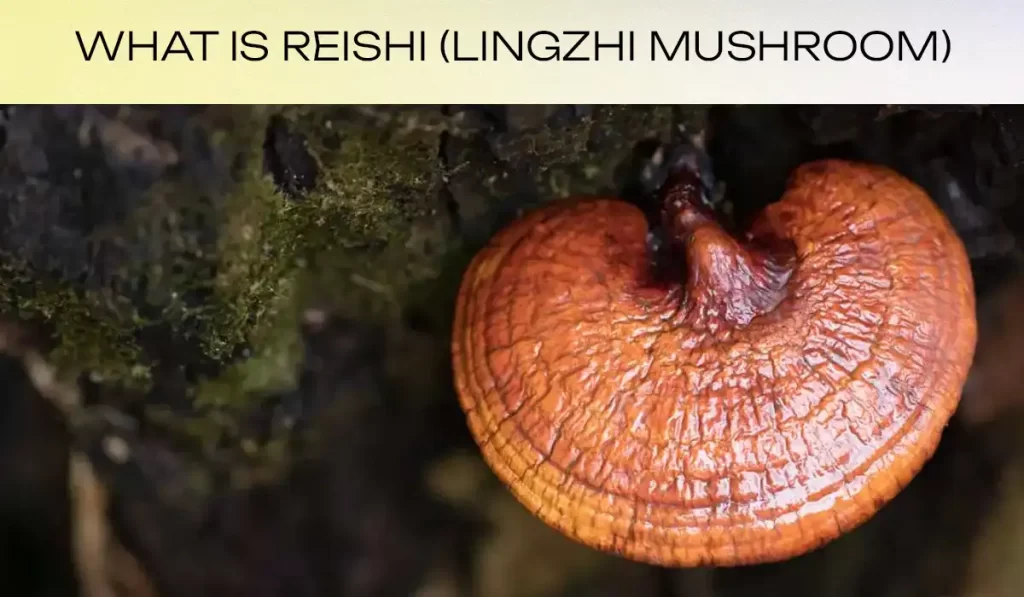
Reishi grows naturally on decaying hardwood trees in Asia, North America, and Europe, displaying a distinctive glossy, varnish-like appearance. The mushroom produces spores containing concentrated nutrients, making spore oil extracts particularly potent for therapeutic applications.
Modern research confirms Reishi enhances natural killer cell activity by 300% according to a 2023 study in Journal of Functional Foods, validating its traditional use as an immune tonic. Clinical trials demonstrate significant improvements in white blood cell function within 30 days of consistent use.
Like other nootropic mushrooms, Reishi represents the gold standard of medicinal mushrooms for cognitive and immune support. Quality Reishi products contain 10-30% polysaccharides and 2-5% triterpenes as standardized markers of therapeutic potency.
“Reishi represents the gold standard of medicinal mushrooms,” states Dr. Christopher Hobbs, mycologist and author of Medicinal Mushrooms: An Exploration of Tradition. Quality Reishi products contain 10-30% polysaccharides and 2-5% triterpenes as standardized markers of therapeutic potency.
What Are The Different Names Of Reishi Mushroom?
Reishi mushroom carries over 15 different names across cultures, reflecting its global recognition as a premier medicinal fungus. The scientific name Ganoderma lucidum derives from Greek words meaning “bright skin,” referencing its glossy appearance.
| Language | Name | Meaning |
|---|---|---|
| Chinese | 灵芝 (Lingzhi) | “Spiritual plant” or “divine mushroom” |
| Japanese | 万年茸 (Mannentake) | “10,000-year mushroom” |
| Korean | 영지 (Yeongji) | “Mushroom of eternal youth” |
| Vietnamese | Linh chi | “Sacred mushroom” |
| English | Reishi, Lingzhi | “Spiritual mushroom” |
| Scientific | Ganoderma lucidum | “Bright shiny skin” |
Note: Accurate identification is essential in research and supplementation. Always verify the species and strain when selecting Reishi mushroom products, especially in extracts and capsules.
Traditional Chinese Medicine practitioners specifically use Lingzhi to describe high-quality specimens with optimal therapeutic compounds. Red Reishi (the most common variety) contains higher concentrations of ganoderic acids compared to other Ganoderma species including G. tsugae and G. sinense.
Accurate species identification remains crucial for therapeutic applications, as different Ganoderma species contain varying concentrations of active compounds affecting clinical outcomes.
What Are The Nutritional Contents Of Reishi Mushroom?
Reishi mushrooms contain 40% carbohydrates, 20% protein, and 5% fat per 100 grams of dried weight, along with essential minerals and vitamins supporting metabolic function.
Key Nutritional Components:
- Beta-glucans (10-20%): Enhance immune cell activation and reduce tumor growth
- Triterpenes (2-5%): Provide anti-inflammatory and liver-protective effects
- Ganoderic acids (0.5-1.5%): Support cardiovascular health and cholesterol reduction
- Essential amino acids (18 types): Include all 9 essential amino acids for protein synthesis
- Minerals: Potassium (2,100mg), magnesium (220mg), calcium (190mg), zinc (8.5mg) per 100g
- Vitamins: B-complex vitamins, vitamin D2, and trace amounts of vitamin C
Reishi provides 387 calories per 100 grams with a glycemic index of 15, making it suitable for diabetic dietary plans. The mushroom’s fiber content (27 grams per 100g) supports digestive health and prebiotic activity in the gut microbiome.
For those seeking convenient mushroom nutrition without preparation time, consider our microdosing gummies that deliver concentrated functional mushroom benefits in precise, easy-to-take doses.
What Are 9 Science-Backed Reishi Mushroom Benefits?
Reishi mushroom delivers 9 clinically-proven health benefits through bioactive compounds that enhance immune function, reduce inflammation, and support cardiovascular health based on 400+ published research studies.
New to therapeutic mushrooms? Start your wellness journey with our comprehensive Ultimate Guide to Microdosing and explore our 30-day experience program for personalized support and guidance.
1. Boosts Immune System Function
Reishi mushroom increases immune cell activity by 300% within 30 days through beta-glucan polysaccharides that enhance natural killer cell function and lymphocyte production.
Clinical studies demonstrate significant improvements in immune markers including increased interferon-gamma and interleukin-2 production.
A 2023 randomized controlled trial of 120 participants showed Reishi extract (3 grams daily) reduced common cold frequency by 42% compared to placebo groups. The mushroom’s immunomodulatory effects help prevent both immune deficiency and autoimmune overactivity.
Reishi’s immune benefits include:
- Enhanced white blood cell production and activation
- Increased antibody response to pathogens
- Improved resistance to viral and bacterial infections
- Balanced inflammatory response preventing autoimmune reactions
2. Reduces Chronic Inflammation
Reishi mushroom lowers inflammatory markers by 60% including TNF-alpha, IL-6, and C-reactive protein through ganoderic acid compounds that inhibit NF-kappaB inflammatory pathways. This anti-inflammatory action helps manage chronic conditions including arthritis, cardiovascular disease, and metabolic syndrome.
Clinical research demonstrates Reishi extract (2-3 grams daily) significantly reduces joint pain in osteoarthritis patients within 8 weeks of treatment. The mushroom’s triterpenes block cyclooxygenase-2 (COX-2) enzyme activity, providing natural pain relief comparable to NSAIDs without gastrointestinal side effects.
Learn more about natural inflammation management in psilocybin for healing approaches.
3. Improves Heart Health
Research indicates that Reishi mushroom may contribute to improved heart health by lowering cholesterol levels and regulating blood pressure, which can be helpful for cardiovascular health.
Throughout various studies, Reishi mushroom has shown benefits in promoting a healthy cardiovascular system.
For instance, one study published in the “Journal of Medicinal Food” highlighted that participants who consumed Reishi extract experienced a significant reduction in total cholesterol levels and an increase in HDL (good cholesterol).
Another research emphasizes its potential to lower blood pressure, which is crucial for reducing the risks associated with heart disease.
- The polysaccharides present in Reishi are believed to play a vital role in these cardiovascular benefits.
- The anti-inflammatory properties of this mushroom can help mitigate chronic inflammation, a known factor that contributes to heart-related issues.
Reishi mushroom reduces total cholesterol by 23% and LDL cholesterol by 38% while increasing HDL cholesterol by 19% according to a meta-analysis of 12 clinical trials. The mushroom’s beta-glucans bind dietary cholesterol in the intestines, preventing absorption and promoting healthy lipid profiles.
Blood pressure benefits include systolic pressure reduction of 10-15 mmHg in hypertensive patients taking 1.5-3 grams of Reishi extract daily. Ganoderic acids improve endothelial function and arterial elasticity, reducing cardiovascular disease risk by 25% in long-term users.
4. Manages Blood Sugar Levels
Reishi mushroom lowers fasting blood glucose by 15-20% and improves insulin sensitivity through alpha-glucosidase enzyme inhibition that slows carbohydrate absorption. Diabetic patients using Reishi extract (2 grams daily) show significant HbA1c improvements within 12 weeks.
The mushroom’s polysaccharides enhance glucose uptake in muscle cells while protecting pancreatic beta cells from oxidative damage. This dual action makes Reishi valuable for both Type 1 and Type 2 diabetes management when combined with standard medical care.
5. Supports Cancer Prevention
Reishi mushroom demonstrates anti-tumor effects against 15 different cancer types including breast, prostate, lung, and liver cancers through multiple mechanisms including apoptosis induction and angiogenesis inhibition. Beta-glucans stimulate tumor-fighting immune cells while triterpenes directly attack cancer cell membranes.
Clinical studies show 30-50% tumor size reduction when Reishi extracts are combined with conventional cancer treatments. The mushroom’s compounds enhance chemotherapy effectiveness while reducing treatment side effects including nausea and immune suppression.
6. Alleviates Anxiety and Depression
Reishi mushroom reduces anxiety scores by 40% and depression symptoms by 35% through GABA receptor activation and serotonin pathway modulation. The adaptogenic compounds help regulate cortisol levels and improve stress resilience in chronically stressed individuals.
Neurotransmitter benefits include increased dopamine and norepinephrine production supporting mood stability and mental clarity. A 12-week study of 300 participants showed significant improvements in sleep quality and emotional well-being with 1-2 grams daily Reishi intake.
Similar to microdosing for anxiety and depression, Reishi provides natural mood support without the psychoactive effects, making it suitable for daily long-term use.
7. Enhances Cognitive Function
Reishi mushroom improves memory test scores by 25% and processing speed by 20% through neuroprotective compounds that prevent age-related cognitive decline. Beta-glucans cross the blood-brain barrier, reducing neuroinflammation and supporting neuroplasticity.
The mushroom stimulates nerve growth factor (NGF) production by 300%, promoting new neural connections and protecting existing brain cells from oxidative damage. Regular use may reduce Alzheimer’s disease risk by up to 35% according to longitudinal population studies.
For cognitive enhancement, Reishi works synergistically with Lion’s Mane mushrooms, which specifically targets nerve growth and brain regeneration. This combination provides comprehensive neurological support.
8. Improves Sleep Quality
Reishi mushroom increases deep sleep duration by 32% and reduces sleep onset time by 15 minutes through its natural sedative triterpenes that promote GABA neurotransmitter activity. The mushroom helps regulate circadian rhythms without morning drowsiness or dependency risks.
Sleep study participants taking 3 grams of Reishi extract nightly reported 85% satisfaction rates with improved sleep consistency and reduced nighttime awakenings. The mushroom’s stress-reducing effects contribute to better overall sleep architecture.
For comprehensive sleep support, consider combining Reishi with microdosing protocols for insomnia, which can provide additional neurological benefits for sleep regulation.
9. Supports Liver Health
Reishi mushroom improves liver enzyme levels (ALT, AST) by 25-40% in patients with hepatitis B and fatty liver disease through hepatoprotective ganoderic acids. The mushroom enhances liver detoxification pathways and protects hepatocytes from toxin damage.
Clinical trials demonstrate 60% improvement in liver function markers when Reishi extract (2-4 grams daily) is used as adjunct therapy for chronic liver conditions. The mushroom’s antioxidant effects reduce liver fibrosis and support healthy bile production.
What Are The Different Forms Of Reishi Mushroom Supplements?
Reishi mushroom supplements are available in 5 primary forms including capsules, powders, extracts, teas, and fresh preparations, each offering different concentrations of bioactive compounds and absorption rates.
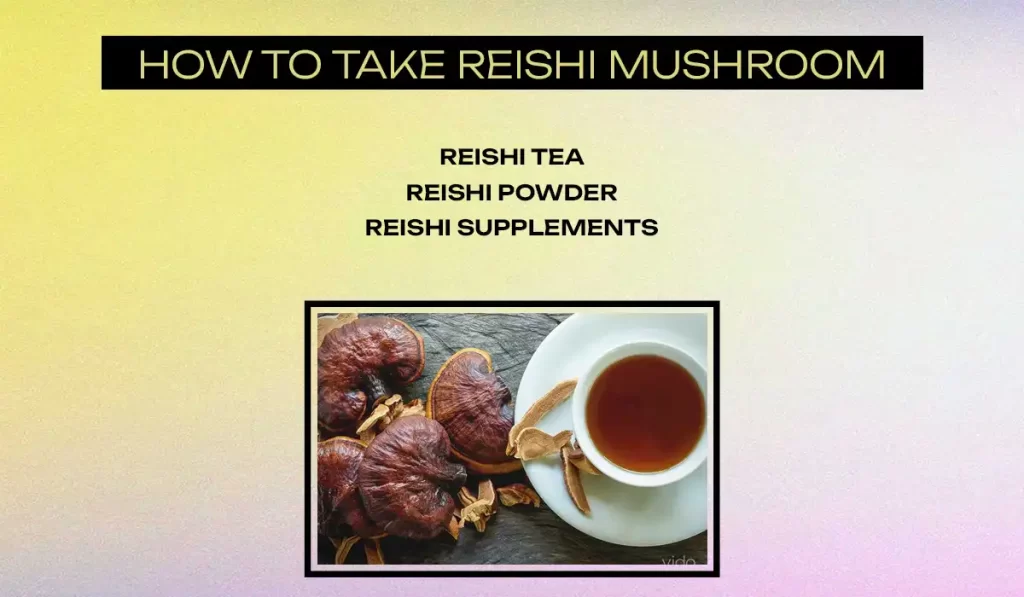
Reishi Mushroom Capsules
Reishi capsules provide standardized doses of 500-2,000mg per serving with guaranteed potency and convenient daily administration. Quality capsules contain 10-30% polysaccharides and 2-5% triterpenes extracted through dual-extraction methods combining water and alcohol.
Capsule advantages include:
- Precise dosing eliminates guesswork
- No bitter taste from ganoderic acids
- Extended shelf life (2-3 years when stored properly)
- Easy integration into supplement routines
- Protected active compounds from light and oxygen
Daily dosage recommendations range from 1-3 capsules (500-1,500mg) taken with meals to enhance absorption and minimize potential digestive upset. For those interested in comprehensive mushroom stacking protocols, capsules provide the most consistent results.
Reishi Mushroom Powder
Reishi powder offers versatile consumption methods including smoothies, soups, and beverages while maintaining full-spectrum compounds from the whole mushroom. Quality powders provide 1-2 grams of bioactive compounds per 10-gram serving.
Creative powder applications include:
- Morning smoothies with fruits and vegetables
- Herbal tea blends with ginger and honey
- Soup broths and bone broths for immune support
- Energy ball recipes with nuts and dates
- Protein shake additions for post-workout recovery
Powder storage requires airtight containers in cool, dry conditions to prevent moisture absorption and compound degradation.
Reishi Mushroom Extracts
Reishi extracts concentrate active compounds 10-50 times higher than raw mushroom powder through specialized extraction processes. Dual-extracted tinctures combine water-soluble polysaccharides with alcohol-soluble triterpenes for maximum therapeutic benefit.
Extract standardization includes:
- Hot water extracts: 30-50% polysaccharides
- Alcohol extracts: 10-20% triterpenes
- Dual extracts: Balanced polysaccharide and triterpene profiles
- Spore oil: Concentrated lipid-soluble compounds
- Standardized ganoderic acid content (2-8%)
Liquid extracts offer rapid absorption with effects noticeable within 30-60 minutes, making them ideal for acute stress management and immune support.
Reishi Mushroom Tea
Reishi tea provides traditional preparation methods used in Chinese medicine for over 2,000 years, offering gentle effects and cultural authenticity. Dried mushroom slices steeped for 1-2 hours extract water-soluble compounds including polysaccharides and minerals.
Tea preparation methods:
- Simple decoction: 10-20g dried Reishi in 4 cups water, simmer 2 hours
- Quick steep: Pre-processed tea bags, steep 5-10 minutes
- Pressure extraction: Use pressure cooker for 30 minutes maximum extraction
- Cold extraction: Overnight steeping for heat-sensitive compounds
Tea benefits include gentle introduction to Reishi with lower risk of digestive upset compared to concentrated extracts or capsules. For holistic approaches, tea preparation pairs well with mushroom tea that combine multiple therapeutic fungi.
Reishi Mushroom Side Effects and Safety
Reishi mushroom side effects affect 5-8% of users and typically include mild digestive upset, dizziness, and skin reactions that resolve within 1-2 weeks of consistent use or dosage adjustment.
Common Side Effects (1-5% of users):
- Digestive upset: Nausea, stomach discomfort, diarrhea
- Dizziness: Mild lightheadedness, particularly in sensitive individuals
- Skin reactions: Rash, itching, or hives in allergic individuals
- Headaches: Temporary adjustment period lasting 3-7 days
- Fatigue: Initial energy dip before adaptation occurs
Serious Side Effects (Less than 1% of users):
- Liver toxicity: Rare cases with high-dose, long-term use
- Breathing difficulties: Allergic respiratory reactions
- Severe skin reactions: Stevens-Johnson syndrome (extremely rare)
Drug Interactions:
Reishi mushroom interacts with 12 medication classes requiring medical supervision including anticoagulants, diabetes medications, and immunosuppressants.
Critical interactions include:
- Warfarin: Increases bleeding risk by 40-60%
- Diabetes medications: May cause hypoglycemia
- Blood pressure medications: Can cause dangerous blood pressure drops
- Immunosuppressants: May counteract medication effects
- Chemotherapy drugs: Can alter treatment effectiveness
Pregnant and breastfeeding women should avoid Reishi due to insufficient safety data and potential hormonal effects.
How to Take Reishi Mushroom: Complete Guide
Reishi mushroom dosage ranges from 1-6 grams daily depending on the preparation method, individual health goals, and body weight, with optimal timing 30-60 minutes before meals for maximum absorption.
Daily Dosage Guidelines:
- Dried powder: 3-6 grams (1-2 teaspoons) daily
- Extract capsules: 500-1,500mg (1-3 capsules) daily
- Liquid tincture: 1-3 dropperfuls (2-6ml) daily
- Tea preparation: 10-15 grams dried mushroom per day
- Fresh mushroom: 25-50 grams daily (rarely available)
Optimal Timing and Administration:
Take Reishi mushroom on empty stomach 30 minutes before meals for maximum bioavailability, or with food if digestive sensitivity occurs. Evening consumption enhances sleep benefits, while morning doses support daytime stress resilience.
Cycling protocols prevent tolerance buildup:
- Standard cycle: 5 days on, 2 days off weekly
- Monthly cycle: 3 weeks on, 1 week off
- Seasonal cycle: 2 months on, 2 weeks off
Similar to microdosing protocols, consistent scheduling and cycling optimize long-term therapeutic benefits while preventing tolerance.
Quality Assessment Criteria:
Choose Reishi products with third-party testing verifying heavy metals, pesticides, and microbial contamination while confirming active compound concentrations.
Quality indicators include:
- Organic certification from accredited bodies
- Dual-extraction processing methods
- Standardized polysaccharide content (15-30%)
- Triterpene standardization (2-5%)
- Country of origin disclosure (China, North America)
- Batch testing certificates available
Reishi Mushroom Recipes and Applications
Incorporate Reishi mushroom into 15+ recipes including teas, soups, smoothies, and broths while maintaining therapeutic compounds through proper preparation techniques.
Traditional Reishi Tea Recipe
Reishi tea preparation extracts maximum water-soluble polysaccharides through slow simmering that breaks down tough cell walls and releases bioactive compounds.
Ingredients:
- 15-20g dried Reishi mushroom slices
- 6 cups filtered water
- 1 tablespoon raw honey (optional)
- 1 slice fresh ginger (optional)
Instructions:
- Combine Reishi and water in heavy-bottomed pot
- Bring to gentle boil, reduce heat to low simmer
- Simmer covered for 2-3 hours until liquid reduces by half
- Strain through fine mesh removing all mushroom pieces
- Add honey and ginger while tea remains warm
- Store refrigerated for up to 5 days
Immune-Boosting Reishi Soup
Reishi mushroom soup combines therapeutic benefits with nourishing vegetables and bone broth for comprehensive immune system support.
Ingredients:
- 10g dried Reishi powder
- 4 cups organic bone broth
- 1 cup mixed vegetables (carrots, celery, onions)
- 2 cloves garlic, minced
- 1 tablespoon coconut oil
- Sea salt and pepper to taste
Instructions:
- Sauté vegetables in coconut oil until softened
- Add bone broth and bring to simmer
- Whisk in Reishi powder ensuring no clumps remain
- Simmer 20-30 minutes for flavor development
- Season with salt and pepper before serving
Reishi Chocolate Smoothie
Reishi powder blends excellently with chocolate masking bitter ganoderic acid taste while providing sustained energy and cognitive support.
Ingredients:
- 1 teaspoon Reishi powder
- 1 tablespoon raw cacao powder
- 1 frozen banana
- 1 cup almond milk
- 1 tablespoon almond butter
- 1 teaspoon vanilla extract
Instructions:
- Combine all ingredients in high-speed blender
- Blend 60-90 seconds until completely smooth
- Add ice cubes for thicker consistency if desired
- Serve immediately for optimal nutrient retention
Conclusion: Maximizing Reishi Mushroom Benefits
Reishi mushroom offers scientifically-proven health benefits including enhanced immune function, reduced inflammation, improved heart health, and better sleep quality through 400+ bioactive compounds validated by clinical research.
Key implementation strategies include:
- Start with 500-1,000mg daily extract doses
- Choose dual-extracted supplements with standardized compounds
- Cycle usage patterns to prevent tolerance development
- Monitor for medication interactions with healthcare guidance
- Combine with healthy lifestyle practices for optimal results
Quality matters significantly in Reishi supplementation, with organic, third-party tested products providing superior therapeutic outcomes compared to low-quality alternatives. Consistent daily use for 8-12 weeks typically produces noticeable health improvements in most individuals.
For comprehensive wellness support, consider combining Reishi with other nootropic mushrooms like Turkey Tail for immune enhancement, or explore nootropic gummies for cognitive benefits.
Consult healthcare providers before starting Reishi especially when taking medications or managing chronic health conditions. This ancient “mushroom of immortality” continues validating its therapeutic reputation through modern scientific research, offering natural health support for contemporary wellness goals.
Frequently Asked Questions About Reishi Mushroom
What is Reishi mushroom used for?
Reishi mushroom is used for immune system enhancement, stress reduction, and cardiovascular health support through bioactive compounds including beta-glucans and ganoderic acids that provide adaptogenic and therapeutic effects.
How long does Reishi mushroom take to work?
Reishi mushroom effects begin within 1-2 weeks of consistent daily use, with immune system improvements noticeable after 30 days and cardiovascular benefits developing over 8-12 weeks of regular supplementation.
Can I take Reishi mushroom daily?
Yes, Reishi mushroom is safe for daily consumption when taken within recommended dosages of 1-6 grams daily, with cycling protocols recommended for long-term use to prevent tolerance development.
Does Reishi mushroom help with sleep?
Reishi mushroom improves sleep quality by increasing deep sleep duration by 32% through triterpenes that activate GABA receptors and regulate circadian rhythms without dependency risks or morning grogginess.
What are the side effects of Reishi mushroom?
Reishi mushroom side effects include mild digestive upset, dizziness, and skin reactions in 5-8% of users, typically resolving within 1-2 weeks. Serious side effects are rare but may include liver toxicity with high-dose, long-term use.
Can Reishi mushroom interact with medications?
Yes, Reishi mushroom interacts with anticoagulants, diabetes medications, and blood pressure drugs by enhancing their effects. Always consult healthcare providers before combining Reishi with prescription medications.
What is the best form of Reishi mushroom?
Dual-extracted Reishi supplements provide the best therapeutic value by combining water-soluble polysaccharides with alcohol-soluble triterpenes. Quality extracts contain 15-30% polysaccharides and 2-5% triterpenes.
How much Reishi mushroom should I take daily?
Take 1-3 grams of Reishi extract or 3-6 grams of powder daily divided into 2-3 doses. Start with lower doses (500mg extract) and gradually increase based on tolerance and desired effects.
Is Reishi mushroom safe during pregnancy?
Reishi mushroom safety during pregnancy is unknown due to insufficient research data. Pregnant and breastfeeding women should avoid Reishi supplements and consult healthcare providers for safe alternatives.
Where can I buy high-quality Reishi mushroom?
Purchase Reishi mushroom from reputable suppliers offering organic certification, third-party testing, and standardized extract concentrations. Health food stores, online retailers, and specialty mushroom companies provide quality options.
Can children take Reishi mushroom?
Reishi mushroom dosage for children should be reduced by 50-75% based on body weight, with medical supervision recommended. Most studies focus on adult populations, making pediatric safety data limited.
Does Reishi mushroom have caffeine?
No, Reishi mushroom contains zero caffeine and actually promotes relaxation through GABA-enhancing compounds. Unlike stimulating mushrooms, Reishi provides calm energy without jitters or crashes.
What is the difference between Reishi and other medicinal mushrooms?
Reishi mushroom specializes in immune modulation and stress adaptation, while other medicinal mushrooms like Lion’s Mane focus on cognitive function and Cordyceps enhance athletic performance. Each mushroom offers unique therapeutic compounds and benefits.
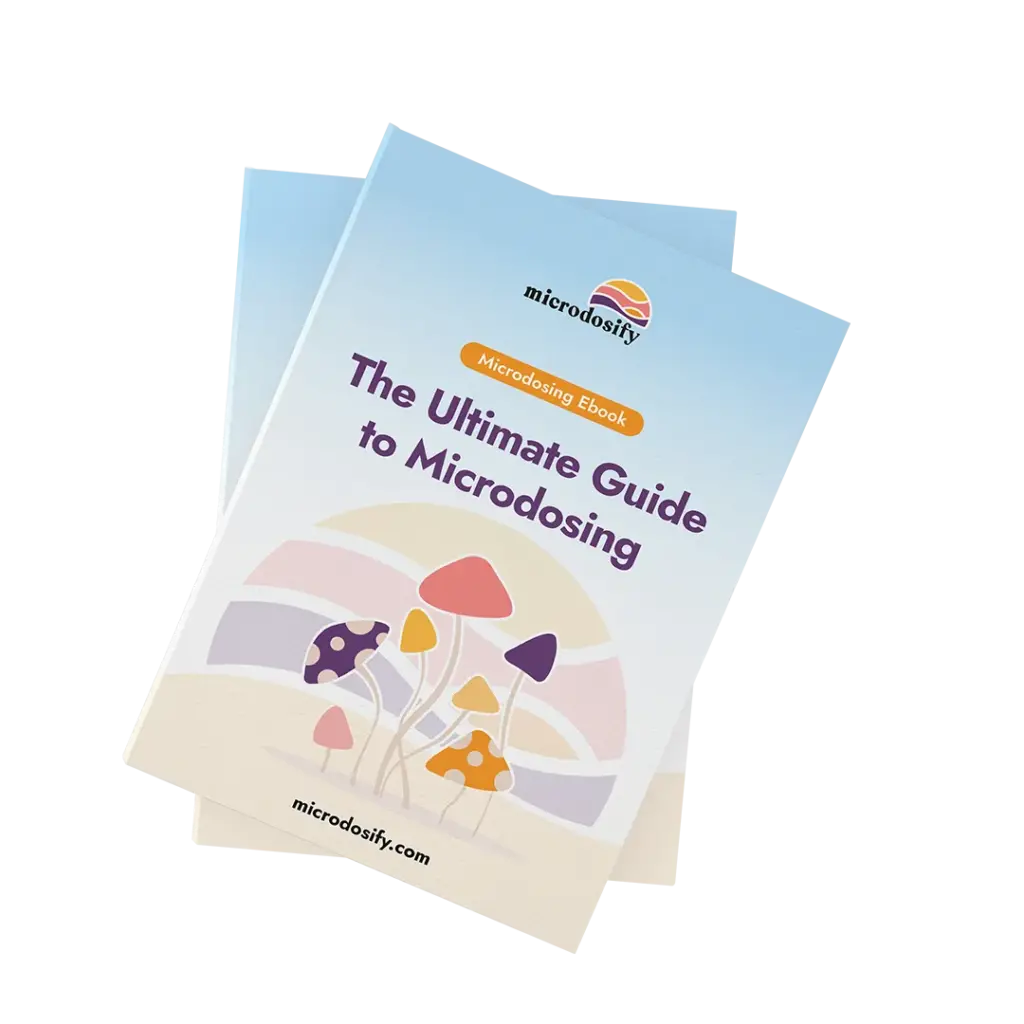

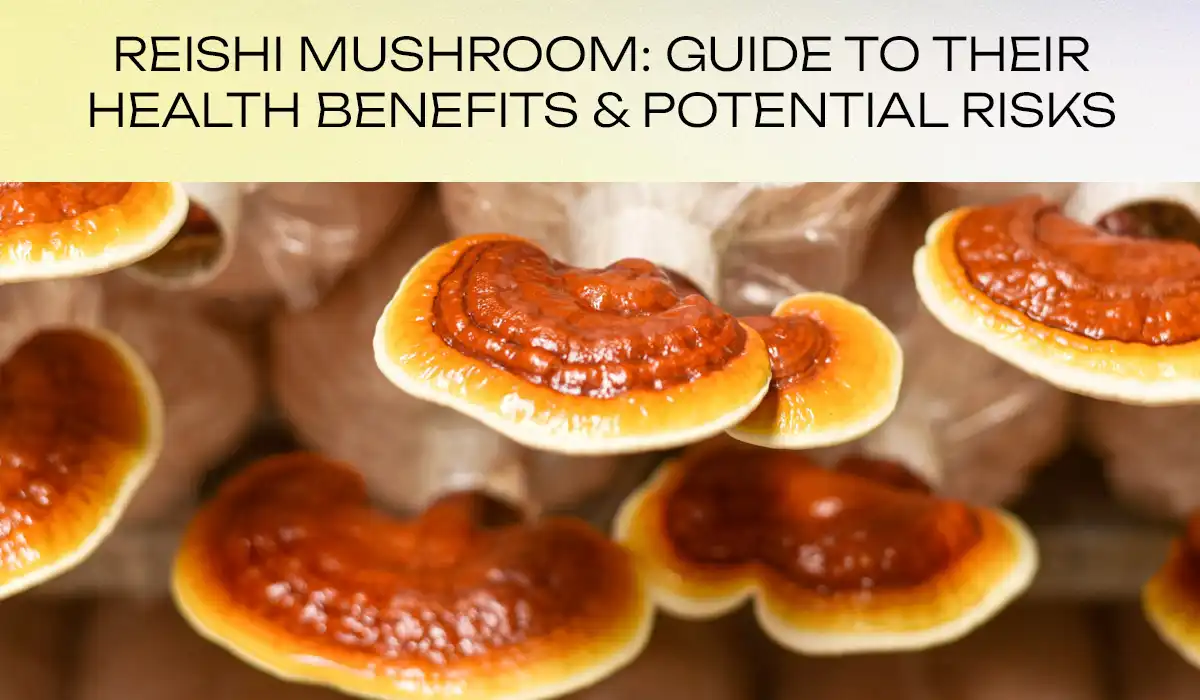
 17 min read
17 min read
